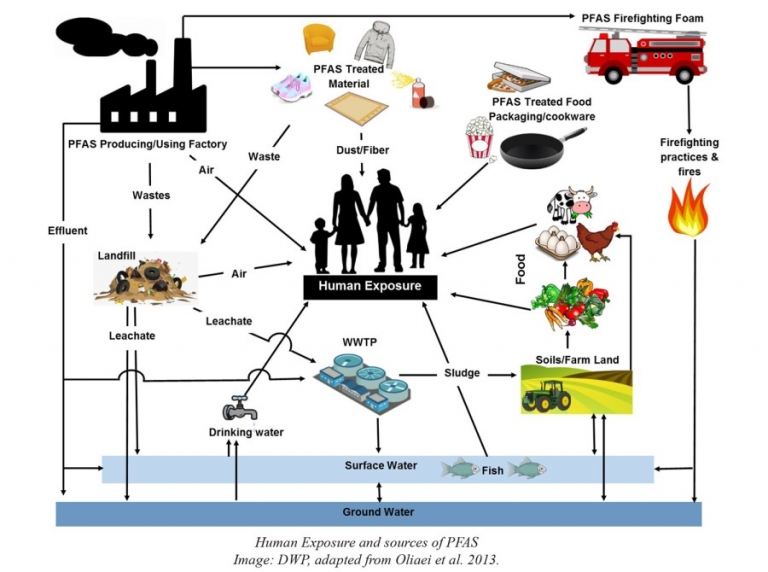By: Lisa Sorg, NC Policy Watch
May 15, 2020
Companies could no longer manufacture PFAS, also known as perfluorinated compounds, in North Carolina under a new proposal, House Bill 1109.
If enacted into law, the measure would also prohibit the export of the toxic compounds, “except for products specifically authorized or required to contain PFAS under federal law.”
The bill was introduced May 14; it has eight co-sponsors, all Democrats: Pricey Harrison, John Autry, Alison Dahle, Susan Fisher, Marcia Morey, Deb Butler, Zack Hawkins and Raymond Smith.
There are 5,000 types of PFAS. Most are used in, or byproducts of, the manufacture of dozens of waterproof and stain-resistant consumer goods, such as clothing, cookware, pizza boxes, microwave popcorn bags, and more.
Of the few types of PFAS that scientists have studied, all have been linked to various health problems in humans, including several cancers, thyroid disorders, low birth weight, high blood pressure during pregnancy, ulcerative colitis and high cholesterol.
The compounds are widespread in the environment, especially rivers, lakes groundwater and drinking water supplies. They are often referred to as “forever chemicals” because they take decades to degrade.
The bill would allow DEQ to assess civil penalties of $5,000 to $25,000 for the first offense, and $10,000 for subsequent offenses. The maximum penalty for one month is $200,000.
It also would appropriate $100,000 in one-time money for additional monitoring and enforcement.
Several of the same sponsors also introduced two additional PFAS-related measures:
- HB 1108 would require any company that discharges PFAS into the waterways to disclose the types, amounts and concentrations in order to receive a permit from the NC Department of Environmental Quality.
The same information would be required of wastewater treatment plants, both public and private, that receive discharges from industry. Those plants would have to remove the PFAS before discharging or require the industrial source to do so.
Among the other provisions are requirements for DEQ to study PFAS in landfill leachate and in biosolids that are applied to land.
PFAS enter landfills when contaminated consumer goods are thrown away. Leachate is liquid from the garbage that is captured in tanks beneath the landfill.
Biosolids are generated from wastewater treatment plants and used to fertilize agricultural fields. However, when it rains runoff from those fields can send PFAS into the groundwater and surface water. From there, the compounds can enter the drinking water supply.
In addition to the $5 million to DEQ for water quality monitoring, the State Water Infrastructure Authority would receive $80,000,000 in one-time money to issue matching grants to water systems to build or improve their drinking water treatment systems to “substantially reduce public exposure to detectable PFAS.”
- HB 1110 would require two state agencies to study the various effects of the compounds on human health and wildlife. DEQ would be required to create an inventory of direct and indirect discharges of PFAS into surface water, air, groundwater and soil.
The Office of Management and Budget would calculate costs to local and state governments, several of which have had to spend millions of dollars to upgrade their drinking water treatment systems to reduce PFAS levels; those expenses are then passed on to ratepayers.
The NC Policy Collaboratory would also be charged with studying the future costs of removing or reducing the contaminant loads.
The bill would appropriate $600,000 for the studies.





